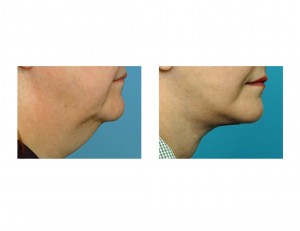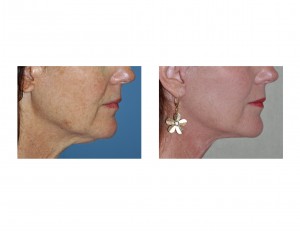
One of the most common questions patients ask about any form of facelift surgery is how long will the results last and will I be happy with it? Like many cosmetic procedures, scientific and quantitative documentation is difficult to obtain and the outcomes are based on anectodal comments. This leaves the plastic surgeon to advise the patient based on a perception of their own experience.
In the January 2012 issue of Plastic and Reconstructive Surgery journal, a study reported on the longevity and satisfaction of facelift surgery in women. A total of 89 patients of three different age groups (< 50, 50 to 60 and >60) were studied with ten year follow-up by photographs and satisfaction surveys. The average age of the photographed group was 53 years old while the survey group was 55. The photographed group felt that they improved their appearance by nearly 12 years while the survery group rated their improvement by 11 years. When studying the improvement by age groups, the younger group (< 50) felt they had improved the most and exhibited the highest satisfaction scores.

Interestingly, younger facial aging patients (under 50) often seek out non-surgical facial rejuvenation approaches in an effort to avoid surgery or to delay it until later. As this study shows, these are exactly the patients who benefit most from facelift procedures and get the best results that last the longest. Because the amount of changes that appear after surgery are not as dramatic as those in older patients, the recovery is less and it is easier to not appear so dramatically different in public.
While this study shows the clear benefits and longevity of facelift surgery, it is important to point out that there are many different variations of facelifts and experience amongst facelift surgeons. Thus not all facelifts and their results are the same. This study was done by a true facelift expert with a specific SMAS technique. This should not be confused with some of the more popular facial rejuvenation techniques such as the Lifestyle Lift and Quicklift who are ideally intended for this younger under 50 age group. This study was not intended nor should be construed that these facelifts methods will have the same long-term results or levels of satisfaction.
Dr. Barry Eppley
Indianapolis, Indiana


